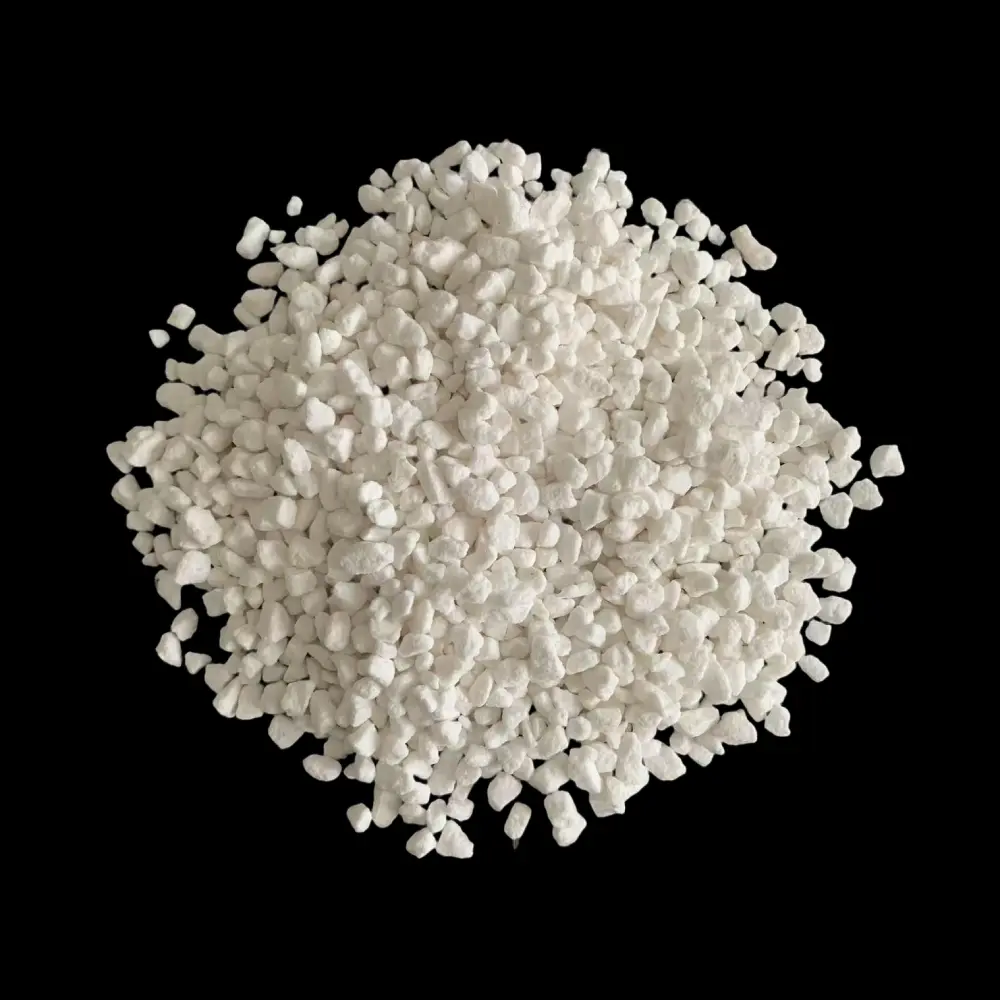As winter approaches, the search for an eco-friendly deicer that is both effective and low-corrosion leads many to Calcium Magnesium Acetate (CMA) Ice Melt, a versatile and safer alternative to traditional rock salt and highly corrosive chloride-based ice melts. Known for its low environmental impact and minimal corrosive properties, CMA has become the go-to choice for municipalities, eco-conscious homeowners, and those concerned with protecting their pets, property, and the planet. This article delves into the essential aspects of CMA ice melt, from its fundamental properties to its practical benefits.
What is Calcium Magnesium Acetate? Understanding the Formula and Basics
Calcium Magnesium Acetate (CMA) is a non-chloride deicer and CMA ice melt agent with the chemical formula CaMg₂(CH₃COO)₆. It typically presents as a white or brownish granular solid, though it is also available in liquid calcium magnesium acetate formulations for specific applications. This compound is produced by reacting acetic acid with a calcined dolomitic lime, and it can also be manufactured from bio-based sources, making CMA a truly biodegradable deicer or agricultural waste streams, enhancing its eco-friendly profile.

The deicing action of CMA is both physical and chemical. When applied to ice or snow, it begins to lower the freezing point of water, similar to traditional salts. However, a key distinction lies in its secondary mechanism; the acetate ions can disrupt the crystalline structure of ice at the surface-pavement bond, making it easier to break up and remove. This makes CMA deicer effective for use on roads, airport runways, and walkways. While its practical melting effectiveness is slightly lower than that of calcium chloride, it performs comparably at moderate temperatures and is particularly valued in situations where corrosion and environmental damage must be minimized.
For large-scale winter maintenance, pure calcium magnesium acetate is often purchased in calcium magnesium acetate bulk quantities. Its production has been scaled up to meet the demands of various agencies looking for a sustainable deicing solution. The environmental effects of calcium magnesium acetate are a significant advantage, as it is known to be readily biodegradable, breaking down into harmless components in soil and water—namely calcium, magnesium, and acetate—which are naturally occurring nutrients.
Table: Key Characteristics of Calcium Magnesium Acetate (CMA)
| Property | Description |
|---|---|
| Chemical Formula | CaMg₂(CH₃COO)₆ |
| Physical Form | White or brownish granular solid |
| Primary Use | Environmentally friendly deicer for roads and walkways |
| Melting Action | Lowers the freezing point of water and disrupts ice bonding |
| Biodegradability | High; breaks down into harmless, natural components |
CMA and Concrete Safety: A Gentle Touch on Surfaces
One of CMA’s biggest advantages is being a concrete-safe ice melt that prevents structural damage. Traditional deicers like calcium chloride can be highly aggressive towards concrete, exacerbating damage through physical and chemical pathways. Research indicates that chloride-based deicers can participate in harmful chemical reactions with cement paste and accelerate the deterioration caused by freeze-thaw cycles. In contrast, studies on calcium magnesium acetate concrete interactions have shown a markedly gentler behavior.

Extensive research, including long-term immersion experiments, has demonstrated that CMA's impact on concrete is minimal. One study noted that after prolonged exposure, high-performance concrete samples in a concentrated CMA solution maintained their structural integrity much better than those exposed to more aggressive salts. The calcium magnesium acetate safe for concrete characteristic stems from the fact that it does not participate in the same expansive and corrosive chemical reactions as chlorides. While it can cause minor surface scaling over very long periods, its destructive effect is considerably less severe than that of traditional deicers. This makes it an ideal choice for protecting valuable infrastructure like bridges, parking garages, and new concrete driveways.
When considering calcium magnesium acetate vs calcium chloride for concrete safety, the difference is clear. Chlorides can rapidly penetrate concrete, corroding the underlying steel rebar and causing cracking and spalling. CMA, however, presents a very low corrosion risk, making CMA one of the most concrete-safe deicers on the market. For property owners and managers looking to preserve their assets while ensuring winter safety, opting for a calcium magnesium acetate deicer is a decision that pays off in the long run through reduced repair and maintenance costs.
Pet-Friendly Deicing: Is Calcium Magnesium Acetate Safe for Dogs?
For pet owners, winter safety means choosing a pet-safe ice melt. So when asking, “Is calcium magnesium acetate safe for dogs?”, the reassuring answer is yes: as a chloride-free deicer, CMA has very low pet toxicity and is considered one of the safest options.
Using CMA means you get environmentally friendly, pet-safe, and low toxicity deicing – without the harsh chemicals found in traditional salts.
These chlorides can cause painful "burned" paws, and if ingested while a pet licks its feet, can lead to serious stomach issues or even sodium poisoning. In contrast, the components of CMA—calcium, magnesium, and acetate—are all substances that can be processed by an animal's body in small amounts without the same toxic effects. This makes CMA safe for pets, significantly reducing the risk of irritation to paws or harm from accidental ingestion.
However, "pet-safe" should not be mistaken for "pet-edible." While CMA is non-toxic, it is not intended for consumption. As a responsible precaution, it is always wise to wipe off your pet's paws and belly after they have been outside during winter, regardless of the deicer used. This simple practice helps remove any residual deicing granules or potential environmental contaminants. By choosing CMA, you are significantly lowering the health risks for your dogs and other pets, providing peace of mind as they enjoy the winter weather.
Making the Right Choice: Calcium Magnesium Acetate vs Calcium Chloride and Other Salts
When comparing CMA vs calcium chloride, the tradeoff often involves performance vs long-term safety and sustainability. Chloride-based deicers, while fast-acting, come with high corrosion, greater environmental impact, and risk to infrastructure. In contrast, CMA (Calcium Magnesium Acetate) is a low-corrosion, biodegradable deicer, which may cost more per application, but saves money in maintenance costs over time.
Although the CMA cost per unit is higher, many property managers find the lifecycle savings—due to reduced structural damage and lower environmental mitigation—outweigh the upfront expense.
CMA, on the other hand, stands out for its minimal corrosive impact and favorable environmental profile. While it may be less effective than calcium chloride at extremely low temperatures (below -5°C), it provides reliable ice control for most common winter conditions. The slightly higher cost per application of CMA is often offset by the substantial savings in reduced damage to vehicles, infrastructure, and the environment. Furthermore, as a biodegradable deicer, it does not accumulate in ecosystems, making it a sustainable choice for environmentally sensitive areas like watersheds and parks.
Table: CMA vs. Traditional Deicers at a Glance
| Feature | Calcium Magnesium Acetate (CMA) | Calcium Chloride |
|---|---|---|
| Corrosiveness | Very Low | Very High |
| Concrete Damage | Minimal | Can be significant |
| Environmental Impact | Biodegradable; low toxicity | Toxic to plants; contaminates water |
| Pet Safety | Safe for pets when used as directed | Can irritate paws and is harmful if ingested |
| Optimal Use Temperature | Moderate cold (down to ~ -5°C / 23°F) | Very cold (down to ~ -25°C / -13°F) |
Where to Buy Calcium Magnesium Acetate
Wondering where to buy CMA? You can purchase CMA ice melt online, through major retailers, or order CMA in bulk quantities (CMA bulk) directly from chemical manufacturers. For large-scale winter maintenance, CMA bulk deicer from a trusted supplier is the most cost-effective.
XRD Chemical is a chemical industry and trade integrated enterprise with 20 years of international trade experience.
The Calcium Magnesium Acetate we produce and develop is well-known for its high quality, high performance and competitive price.







